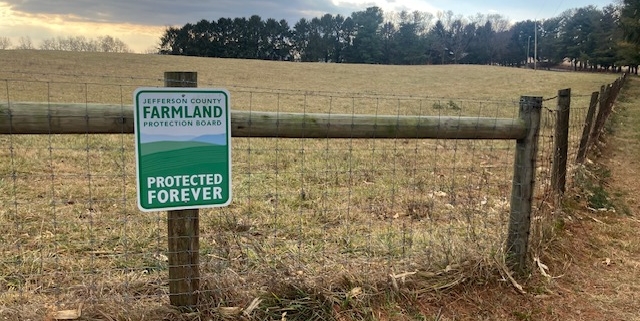Land Ownership Rights Threatened by the Legislature
The ability to acquire cheap, fertile land drove much of American history. Ordinary people – many of them recent immigrants – could obtain land on which to sustain families with very little more than hard work. Land in America is generally owned in “fee simple,” meaning that the owner possesses every aspect of ownership and every possible use. But recent efforts around the country by extractive industries and their legislative allies are threatening this historic type of land ownership. We saw it here in West Virginia during the 2024 legislative session and may see it again in the upcoming session.
Ownership in fee simple enables the landowner to retain the property while conveying pieces of his ownership rights to another, such as by leasing the property or selling the right to develop minerals. An owner can also sell the right not to develop the property through a land protection agreement. In that way he can ensure that the property remains farmland or naturally beautiful land forever. Large timber, coal, and gas companies hate this because land protection agreements remove land from the market that could be exploited by them for tremendous profits.
There are two types of land protection agreements, sometimes called “conservation easements.” Both are private contracts made voluntarily by the landowner. One type of agreement is made between the landowner and a government-supported entity, like the Nicholas County Farmland Protection Board. In that type, the landowner keeps the property, but sells the right to use or develop it for non-agricultural purposes. The owner receives income, while the Farmland Protection Board – which buys the development rights — ensures that the land remains farm or agricultural land forever.
A second type of land protection agreement does not involve the government. This type is made between a private landowner and a charitable group like the Land Trust of the Eastern Panhandle to preserve the natural character of valuable scenic or historic land by prohibiting development, including commercial mining and timbering. In this type, the owner donates the development rights and gets a tax deduction for the value of the donation.
Both types of land protection agreements are voluntary choices by the landowner, and both generate income to the landowner while preserving the character of the property for future generations.
But in 2024, an effort was made in the West Virginia Legislature to limit the ability of landowners to protect land and generate income while doing so. The irony of this is palpable. Our Legislature is controlled by Republicans, who purport to be the political party most interested in limiting government intrusion into private affairs.
The vehicle for this effort was SB 822, which remained alive until the last day of the legislative session when it was removed from the Senate’s calendar. That bill declared it to be state policy to promote land and mineral development and timber harvesting “for the economic benefit of the citizens of the state.” It went on to declare that any land protection agreement interfering with mineral development and timber harvesting would be void if its term exceeded 20 years.
If it had passed, SB 822 would have removed the historic right of landowners to determine how to use their land — or not use it. It would also have eliminated the land protection agreements used as a tool by land trusts to protect land into the future. This is because a federal tax deduction would not be available for the donation of a conservation easement that is not perpetual. And a land protection agreement that becomes void after 20 years would certainly not be perpetual. With no tax deduction, these land protection agreements would simply cease to be attractive to landowners.
The West Virginia effort coincided with the introduction of HR 2773 – the “Landowner Easement Rights Act” — in the U.S. House of Representatives. That bill would have forbidden the Secretary of the Interior from entering conservation easement agreements with private landowners for longer than 30 years and would have permitted the renegotiation of existing easements with a longer term. That might happen when, for example, an oil company makes a subsequent owner of the protected land an offer he can’t refuse. The feeble justification for HB 2773 was concern for future owners who may want to do something else with the land.
I hope the reader will excuse me for not believing that justification. When have large extractive industries been primarily motivated by the land ownership rights of others, particularly those who haven’t even acquired ownership yet? To make sense of this, you have to follow the money. The effort to undermine land protection agreements – and land ownership freedom — is purely driven by the profit motive of these industries, and they are wrapping that unattractive motivation in the cloak of concern for the future landowner.
The American Legislative Exchange Council (ALEC), a right-wing think tank that produces model legislation available for use by state legislators, recently considered model legislation limiting conservation easements to 20 years. The argument made in support was that landowners are somehow defrauded by government, land trusts, and “radical environmentalists” into surrendering their development rights perpetually, thereby binding future generations and freezing the land’s use “according to today’s practices and societal goals.”
To their credit, ALEC recognized a bogus policy idea when they saw it and refused to adopt the model legislation. Reference to it has been completely removed from ALEC’s website.
Wags in Charleston often refer to the West Virginia Legislature as a “bad idea machine.” Interfering with a landowner’s property rights and destroying the land protection agreement in the process is a colossal bad idea. Let’s hope that the Legislature resists the temptation to inject government into private land ownership simply to satisfy big industry.



